Home
Lehre
Vorlesungen
Sommersemester 2025
Wintersemester 2024/25
Sommersemester 2024
Wintersemester 2023/24
Sommersemester 2023
Wintersemester 2022/23
Advanced Topics in Computer Graphics
Grid und Cloud Computing
Parallel and High Performance Computing
News
Content
Audience
Important Notes
Lab Exercises
Downloads
Further Reading
Contact
Virtual Reality
itsec
Sommersemester 2022
Wintersemester 2021/22
Sommersemester 2021
Wintersemester 2020/21
Sommersemester 2020
Wintersemester 2019/20
Sommersemester 2019
Wintersemester 2018/19
Sommersemester 2018
Wintersemester 2017/18
Sommersemester 2017
Wintersemester 2016/17
Sommersemester 2016
Wintersemester 2015/16
Sommersemester 2015
Wintersemester 2014/15
Sommersemester 2014
Wintersemester 2013/14
Sommersemester 2013
Wintersemester 2012/13
Sommersemester 2012
Wintersemester 2011/12
Sommersemester 2011
Wintersemester 2010/11
Sommersemester 2010
Wintersemester 2009/10
Sommersemester 2009
Wintersemester 2008/09
Sommersemester 2008
Wintersemester 2007/08
Sommersemester 2007
Wintersemester 2006/07
Sommersemester 2006
Wintersemester 2005/06
Sommersemester 2005
Wintersemester 2004/05
Sommersemester 2004
Praktika
Seminare
Oberseminare
Studentische Arbeiten
Mündliche Prüfungen
Downloads
MNM Team
Projekte
Publikationen
en
Parallel and High Performance Computing
Vorlesung mit Übung im Wintersemester 2022/23
Prof. Dr. D. Kranzlmüller,
Dr. K. Fürlinger,
Pascal Jungblut,
Sergej Breiter
This course will be held in English!
Welcome to the course webpage for Parallel and High Performance Computing for winter-term 2022/23 at LMU Munich. Here you will find details on the lecture and the accompanying practical lab exercises.News
- The lecture on Dec. 22 will be held in the form of a Q&A session. I.e., if you have questions about the material presented so far, we can discuss it then. No new material will be presented.
Content
Parallel computing is concerned with using multiple compute units to solve a problem faster or with higher accuracy. Historically, the main application area for parallel machines is found in engineering and scientific computing, where high performance computing (HPC) systems today employ tens- or even hundreds of thousand compute cores.
The application area for parallel computing has, however, expanded recently to essentially include all areas of information technology. Virtually all servers, desktop, and notebook systems, and even smartphones and tables are today equipped with CPUs that contain multiple compute cores. In each case, the potential for these systems can only be fully realized by explicit parallel programming. As such understanding the benefits, challenges, and limits of parallel computing is increasingly becoming a "must have" qualification for IT professionals.
This course addresses the increasing importance of parallel and high performance computing and is covering three interwoven areas: Parallel hardware architectures, parallel algorithm design, and parallel programming. The successful student will be able to identify potentials for parallel computing in various application areas, judge the suitability of contemporary hardware architectures for a parallel computing problem and understand efficient implementation strategies using modern parallel programming approaches.
The lecture is partially based on material that has been developed at UC Berkeley and which has been funded by the US National Science Foundation. The course slides will be made available for download by the date of the lecture and will be in English.Audience
The course is intended for both bachelor and master students of computer science and related fields. More formally, in German: Die Vorlesung richtet sich an Studenten der Informatik bzw. Medieninformatik (Diplom) nach dem Vordiplom sowie an Studenten der Informatik, Bioinformatik bzw. Medieninformatik (Bachelor, Master) im Rahmen der vertiefenden Themen der Informatik. Für Vorlesung und Übung werden 6 ECTS-Punkte vergeben.Important Dates
Please note that the dates and locations for lecture and lab exercises listed below are provisional and may change prior to the start of the course!- Lecture: Thursday 9:15 - 11:45, Amalienstr. 73A, Room 112. First lecture: Thursday, October 20, 2022, starting at 9:15 in Amalienstr. 73A, Room 112
- Lab exercise: Thursday 14:15 - 15:45, Geschw.-Scholl-Pl. 1 (F) - F 007. First lab: Thursday, October 27, 2022, starting at 14:15 in Room Geschw.-Scholl-Pl. 1 (F) - F 007
- Please keep an eye on News for any short-term changes and announcements.
Lab Exercises
The lecture is accompanied by a lab exercises to deepen the understanding of topics covered in the lecture. High performance computing systems hosted at the Leibniz Supercomputing Center will be made available to the students. Worksheets for the lab exercises will be made available on Uni2Work.Downloads
Lecture slides will be made available chapter-by-chapter through this webpage.Further Reading
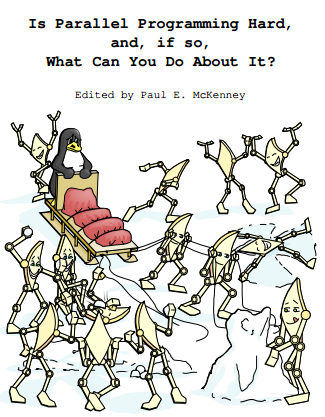
|
Paul E. McKenney (Ed.): Is Parallel Programming Hard, And, If So, What Can You Do About It?(online) (link) | |
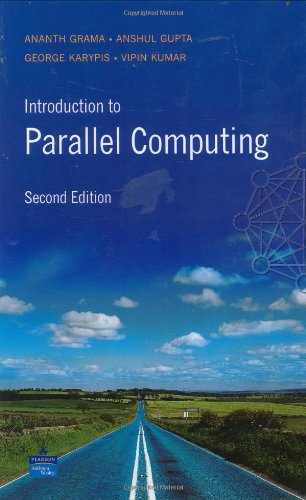
|
Ananth Grama et al.:Introduction to Parallel Computing (2nd Ed.) (link) | |
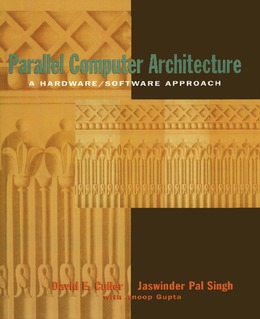
|
David Culler and Jaswinder Pal Singh: Parallel Computer Architecture, A Hardware / Software Approach (link) | |
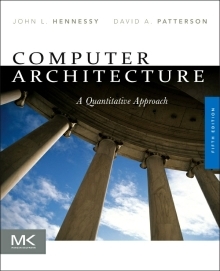
|
John Hennessy and David Patterson: Computer Architecture a Quantitative Approach (5th Ed.) (link) | |
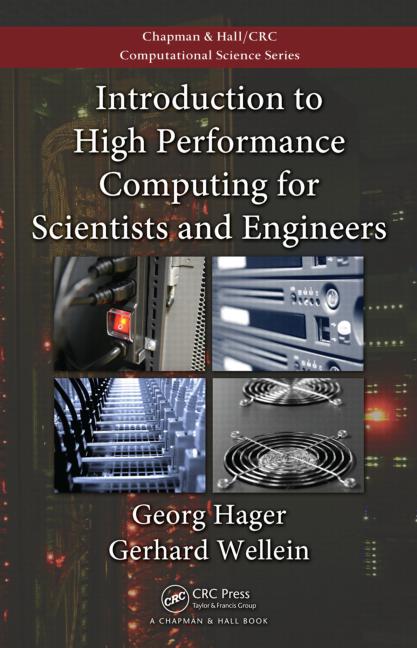
|
Georg Hager and Gerhard Wellein: Introduction to High Performance Computing for Scientists and Engineers (link) | |
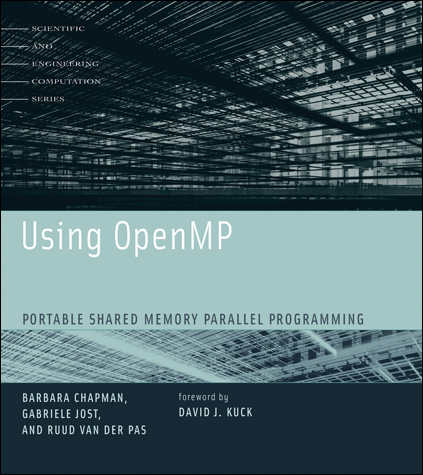
|
Barbara Chapman et al.: Using OpenMP (link) | |
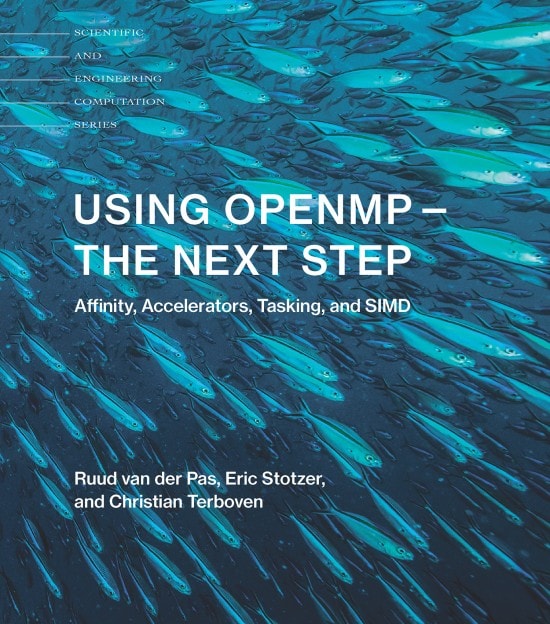
|
Ruud van der Pas, Eric Stotzer and Christian Terboven Using OpenMP - The next Step (link) | |
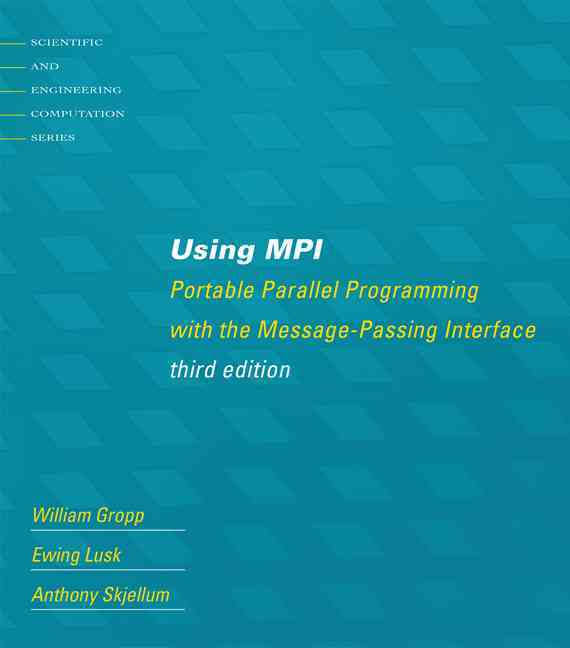
|
William Gropp, Ewing Lusk, Anthony Skjellum: Using MPI (link) | |
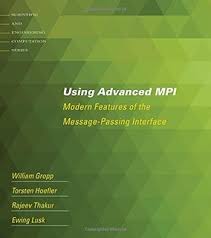
|
William Gropp, Torsten Hoefler, Ewing Lusk: Using Advanced MPI (link) |

![[PRINT]](/_images/printer1.png)